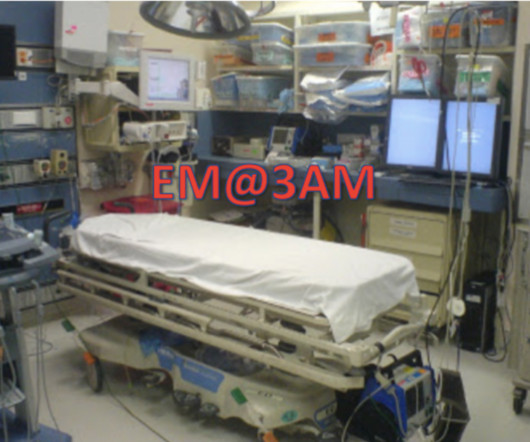EM@3AM: Leukopenia
EMDocs
JANUARY 25, 2025
Answer : Leukopenia Overview Leukopenia is defined as total WBC count < 4000/mm 3 Neutropenia is the most common subset of leukopenia and is defined on absolute neutrophil count: 1 Mild (1.01.5 10^9/L) Moderate (0.50.9 10^9/L) Severe (< 0.5 10^9/L) Generalized leukopenia (i.e. Most common causes of leukopenia Infections: 36.4%













Let's personalize your content